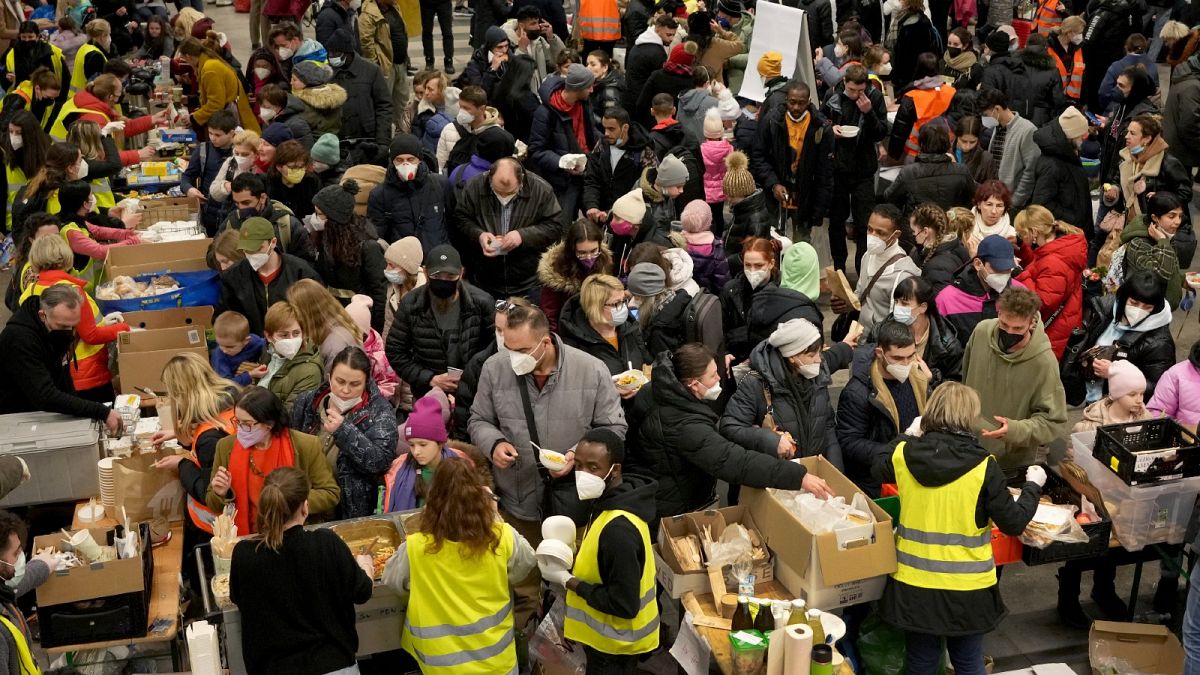The number of asylum-seekers from other countries has meanwhile jumped by a third compared to last year.
The German government pledged on Tuesday to provide more support to cities and towns struggling to house the more than 1.1 million refugees and migrants who have arrived in the country this year, mostly from war-torn Ukraine but also other countries such as Syria and Afghanistan.
After meeting with state and local officials, Interior Minister Nancy Faeser said while the government already allocated federal real estate for tens of thousands of refugees earlier this year, it would immediately provide additional property for about 4,000 refugees to ease the current housing crisis.
Faeser also promised financial support but did not give any concrete figures.
Several cities have recently started putting up tents and turned convention centres into temporary accommodation as regular migrant centres have become overcrowded.
“I don’t want to downplay this, we have a tense situation,” Faeser told reporters in Berlin. "That’s why we discussed today how to best coordinate our assistance to refugees ... also in view of the winter months that lie ahead.”
More than one million people have entered Germany from Ukraine since Russia attacked the eastern European country on Feb. 24. About a third of them are children and teenagers, and more than 70 per cent of the adults are women.
“It’s a big humanitarian effort to take good care of the refugees from Ukraine, to provide shelters, to provide daycare centres and schools for the children and to give them social support,” Faeser said. She added that Germany was expecting more refugees from Ukraine as Russia escalates its brutal attacks on Ukraine and people there may be struggling even more to survive during the cold winter months.
While the interior minister stressed that Germany was ready to welcome more Ukrainians despite the difficult housing situation, she struck a significantly different tone regarding asylum-seekers from other countries, especially those trying to reach Germany via the so-called Balkans migration route.
“The number of asylum applications has increased in recent months, as has the number of unauthorised entries. Not only in Germany, but overall along the European Union's external borders, the pressure is currently increasing," Faeser said. "That’s why we also have to clearly ensure a limit.”
As of the end of September, 134,908 people had applied for asylum in Germany in 2022. That is around a third more than in the same period last year, according to figures from the Federal Office for Migration and Refugees. However, it's still a far call from 2015-16, when more than 1 million migrants from countries like Syria, Iraq and Afghanistan applied for asylum in Germany.
The figures for asylum applications in 2022 are much lower than the total number of refugees because Ukrainians can enter Germany without a visa and do not need to apply for asylum.
In an effort to keep other migrants from crossing into the country, the interior minister said Germany would extend and increase its border controls to Austria for another six months and also intensify controls to the Czech Republic.
The move comes after Austria and the Czech Republic introduced temporary border controls to Slovakia last month to keep migrants from entering their countries.
Germany, Austria, the Czech Republic and Slovakia all belong to the European Union’s visa-free Schengen zone, where residents of member nations typically can cross borders without presenting passports or visas. However, Schengen countries have adopted temporary border controls in the past for various reasons, including to curb illegal migration and to prevent the spread of the coronavirus.
Germany also sharply criticised Serbia — which is an EU candidate country but not a member yet — for its visa-free regime with some non-EU countries. Citizens from India, for example, are increasingly flying to Serbia, where they don't need visas unlike for EU countries, and then trying to cross into wealthier western European countries via the Balkans route.
“To be clear, Serbia’s visa practice is unacceptable," Faeser said. "This also contributes to the movements on the Balkan route. Serbia must adapt its visa rules to those of the European Union. This is a clear expectation of the German government.”
